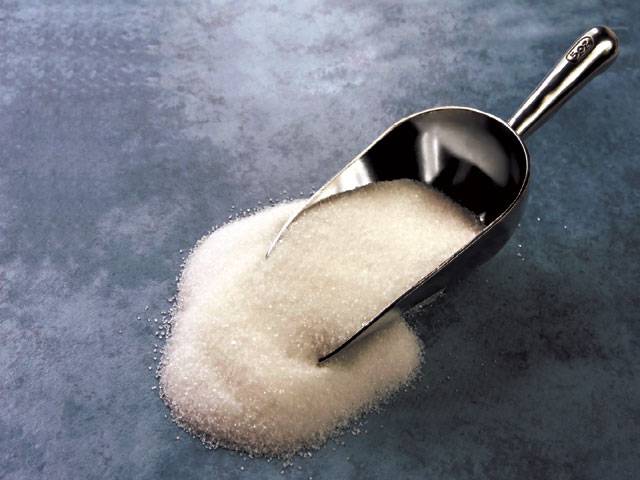LAHORE – The Punjab government has asked Islamabad to revise the decision of exporting sugar, saying that lifting of ban amidst the crushing season is dangerous as it is likely to create shortage of the white sweetener in the country.
Official sources told The Nation that after the recent approval of the central government to lift ban on export of 100,000 tons of sugar, the Punjab government has written separate letters to the federal secretary for commerce, federal secretary for industries, federal secretary for food security and federal secretary for finance to inform the government regarding its concerns over the decision on sugar export. The Punjab government said that the centre has taken a wrong decision at a wrong time as crushing season is continuing and this act of the government would have bad impact on production as well as the supply. The provincial government said Islamabad did not take the provinces on board despite the fact the provinces, particularly the Punjab, is the main stakeholder, as majority of sugar mills are located here while most of the sugarcane is produced from this area. If, in future, there is some shortage of sugar due to inapt policies of the centre the Punjab will suffer the most.
It is to be noted that with sugar’s sufficient stock of around 0.9 million tons and expected record production of over 4.5 million tons during the current crushing season, the Punjab government had already warned the Federal Board of Revenue to keep a vigilant eye on sugar mills, as the commodity may be smuggled to Afghanistan.
Present rate of sugar at international market in Pak rupee is over Rs84 per kg while domestic rate of white sweetener is less than Rs52 per kg. This huge gap of Rs32 in price of sugar may lure the millers, wholesale dealers and smugglers to attempt to smuggle the existing stock of white sweetener to the neighbouring country.
Punjab government had also written a letter to the Federal Board of Revenue to remain on its toes and fully check the sale of the sugar mills on daily basis. Officials said that Punjab government also receives the daily stock condition of the mills but cannot check their sale. They said that it is past practice of the millers, stockists as well as the dealers to take the benefit of high rates in neighbouring country and smuggle sugar to for minting more and more money.
Officials said that country had enough sugar stock, as left over stocks from 2010 to 2011 were 0.9 million tonnes and current crop is expected to yield record production of around 4.5 million tonnes. Country’s annual consumption is 4.2 million tonnes. Hence, it is expected surplus of the commodity would be around 1.5 million tonnes.
While appreciating the government decision, they said that government should allow the export of more quantity than 100,000 tonnes of sugar as country has enough stock of the commodity and there will be no shortage.
It is worth mentioning that the government has approved the export of sugar for the first time in nearly three years, spurred by an expected surplus of more than 1 million tons. Pakistan was forced to import about 1.2 million tons of sugar in 2010 after production fell to 3.1 million tons from the 2009/10 crop year, when many farmers switched to more profitable crops.
The government has approved the export of 100,000 tons of sugar, but the modalities of export have not been worked out yet. Last year, sugar millers sought permission from the government to export up to 500,000 tons of refined sugar because of expectations of a bumper crop, which could exceed 5 million tons.
“More sugar export should be allowed to avoid smuggling to Afghanistan as price gap is over Rs30 a kg. So, it is better to allow the millers to export the commodity legally to benefit the national exchequer.” This decision would also help the millers make payments to growers and meet their financial obligations in time.
Experts estimated that Pakistan’s 2011/12 sugar production was between 4.5 million and 5.1 million tons, while annual domestic sugar consumption was seen at 4.2 million tons. But global sugar prices were expected to be steady at current levels as the market factored in more supply from India, Brazil and Thailand. India, the world’s number 2 sugar producer after Brazil, has a sugar surplus of 3 million to 4 million tons available for export in 2011-12.
Wednesday, November 20, 2024
Sugar export amidst crushing dangerous

Second KP Inter-University Speech Competition held
November 20, 2024
Kremlin says attack by non-nuclear state with nuke support could lead Russia to use nuclear arms
9:06 AM | November 20, 2024
SACM KP reviews Mardan uplift schemes
November 20, 2024
Dar holds telephone conversation with Dutch FM
November 20, 2024
195 health facilities to be solarised in KP
November 20, 2024
-
Hunger crisis to increase in South Sudan, warns UN
-
Hunger crisis to increase in South Sudan, warns UN
-
Pakistan’s judiciary champions climate justice at COP29 in Baku
-
Punjab struggles with persistent smog as Met Office forecast rainfall
-
Punjab residents face escalating smog crisis as pollution levels soar across country
-
Qatar says Hamas 'no longer welcome' in Gulf state
Digital Stagnation
November 20, 2024
Xi’s Red Lines
November 20, 2024
Last Call
November 20, 2024
Sindh & Indus
November 19, 2024
Another US Escalation
November 19, 2024
Tackle Corruption Within School Boards
November 20, 2024
To Be Opportunistic
November 20, 2024
Democratic Backsliding
November 20, 2024
Empowering Tharparkar through Skills Development
November 20, 2024
Why Not Use AI to Address Climate Change?
November 19, 2024
ePaper - Nawaiwaqt
Nawaiwaqt Group | Copyright © 2024





